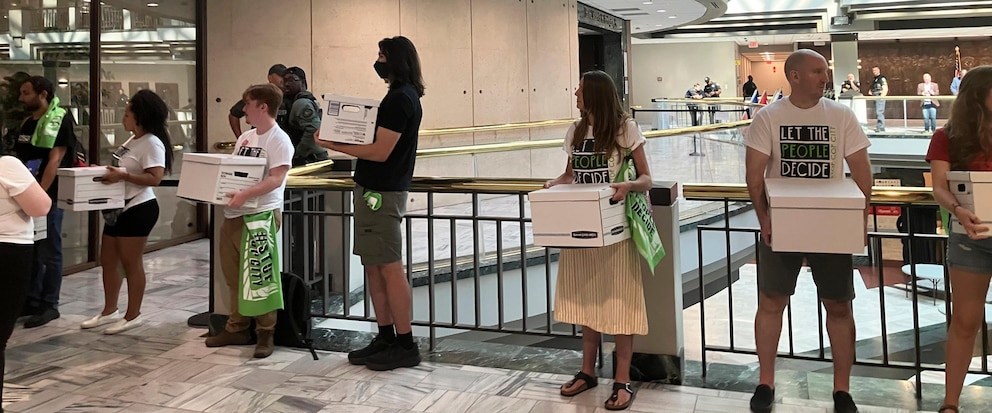Atlanta Officials Refuse to Process Signatures, Leaving ‘Stop Cop City’ Petition in Limbo
In a recent turn of events, Atlanta officials have decided to refuse processing signatures for the ‘Stop Cop City’ petition, leaving it in a state of uncertainty. The petition, which aims to halt the construction of a new police training facility known as ‘Cop City,’ has gained significant traction and support from local residents who are concerned about the allocation of funds and the impact on their communities.
The controversy surrounding ‘Cop City’ began when the Atlanta Police Department proposed the construction of a state-of-the-art training facility. The project, estimated to cost around $90 million, was intended to provide advanced training for police officers and improve law enforcement practices in the city. However, critics argue that the funds could be better utilized in other areas such as education, healthcare, and social services.
To voice their concerns and opposition to ‘Cop City,’ activists launched a petition drive to gather signatures from Atlanta residents who believe the project is unnecessary and a misallocation of resources. The petition quickly gained momentum, with thousands of residents signing in support of halting the construction.
However, despite the overwhelming response from the community, Atlanta officials have chosen not to process the signatures, leaving the petition in limbo. This decision has sparked outrage among activists and residents who feel their voices are being silenced and their democratic rights violated.
City officials argue that the decision is based on legal technicalities. They claim that the petition does not meet the requirements outlined in the city’s charter for a valid initiative. According to these requirements, a petition must include a specific legislative proposal and cannot interfere with administrative functions or personnel decisions.
Critics of this decision argue that it is a deliberate attempt to stifle dissent and prevent citizens from exercising their right to participate in local decision-making processes. They believe that the city officials’ refusal to process the signatures is an infringement on their democratic rights and a disregard for the concerns of the community.
The ‘Stop Cop City’ movement has vowed to challenge the decision in court, arguing that the city’s interpretation of the charter is overly restrictive and does not align with the principles of democracy. They believe that the petition meets the spirit of the charter by expressing a clear legislative proposal – to halt the construction of ‘Cop City’ – and that it is within their rights as citizens to voice their concerns.
This situation raises broader questions about citizen engagement and the role of petitions in local governance. Petitions have long been considered an essential tool for citizens to express their opinions, influence policy decisions, and hold elected officials accountable. However, when officials refuse to process signatures, it undermines the democratic process and erodes trust in local government.
As the legal battle over the ‘Stop Cop City’ petition unfolds, it is crucial for Atlanta officials to reconsider their decision and prioritize community engagement. Ignoring the voices of concerned residents only deepens divisions and fosters an environment of mistrust. It is essential for officials to recognize the importance of public participation and work towards finding a solution that addresses the concerns of both sides.
Ultimately, the fate of ‘Cop City’ and the ‘Stop Cop City’ petition remains uncertain. However, what is clear is that this situation highlights the need for open dialogue, transparency, and a commitment to democratic principles. The residents of Atlanta deserve to have their voices heard and their concerns taken seriously, as they play an integral role in shaping the future of their communities.



